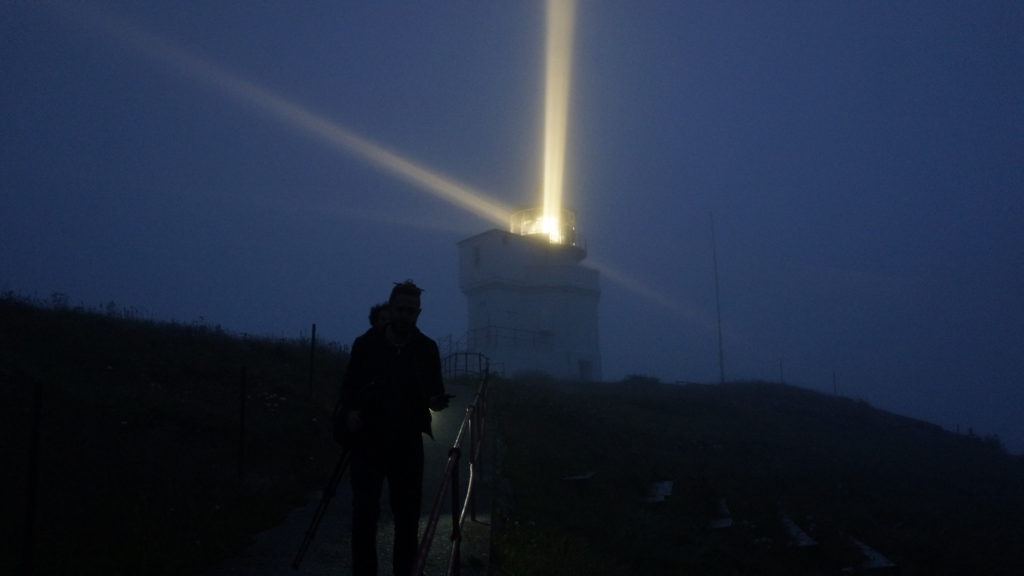
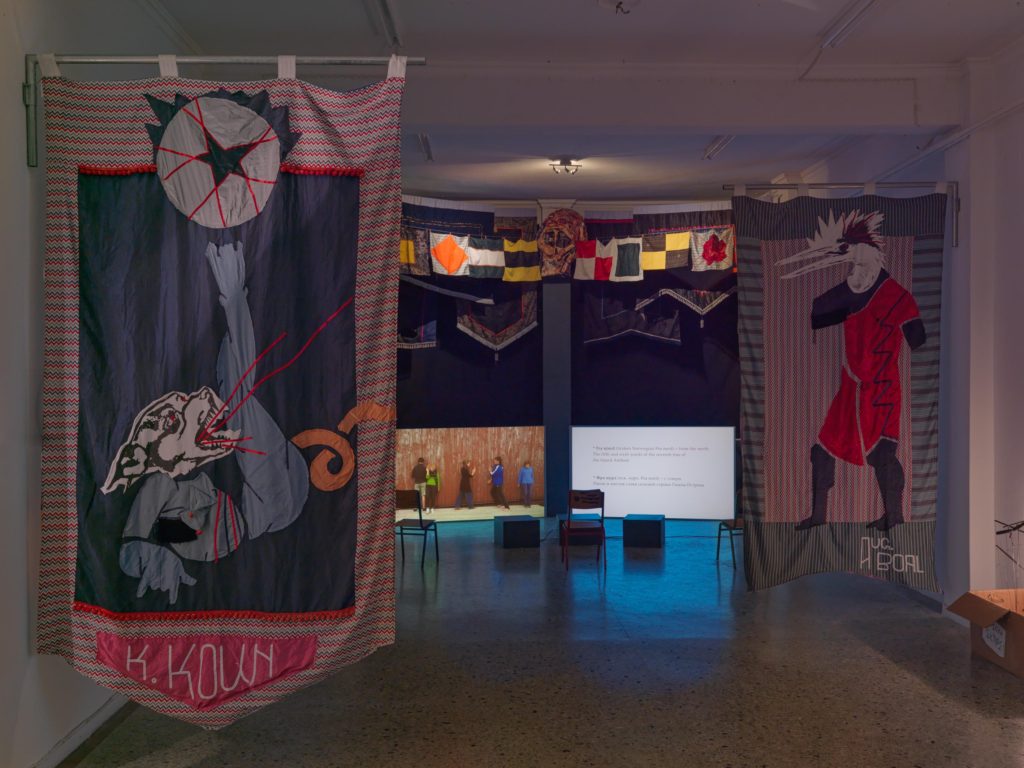
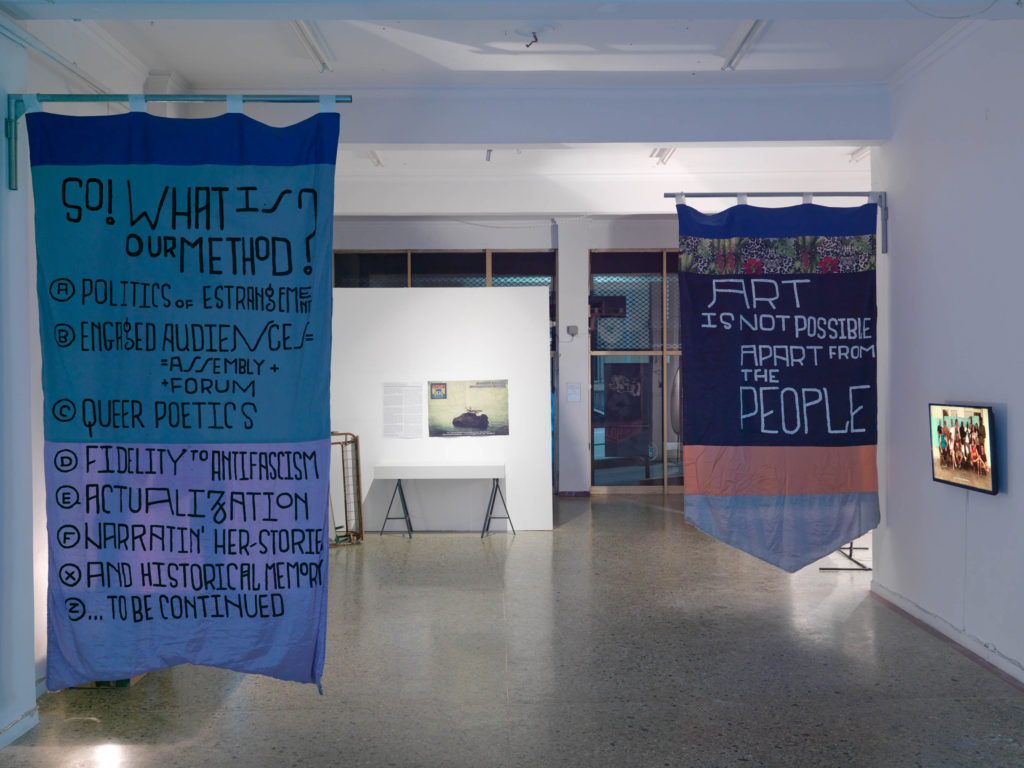
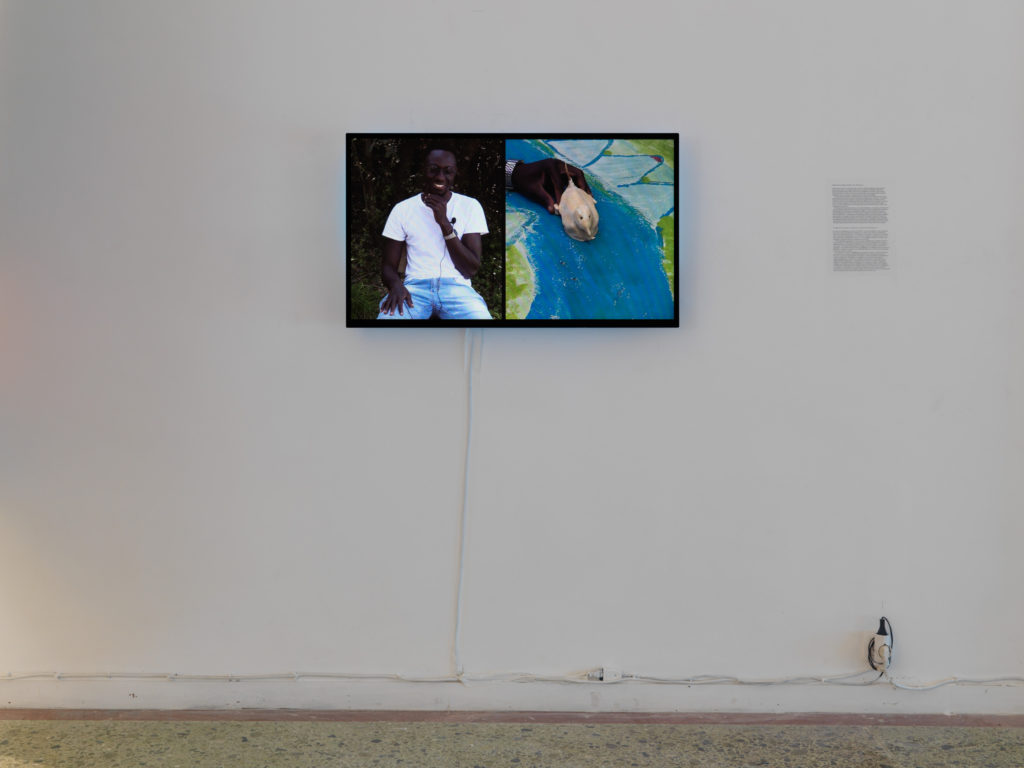
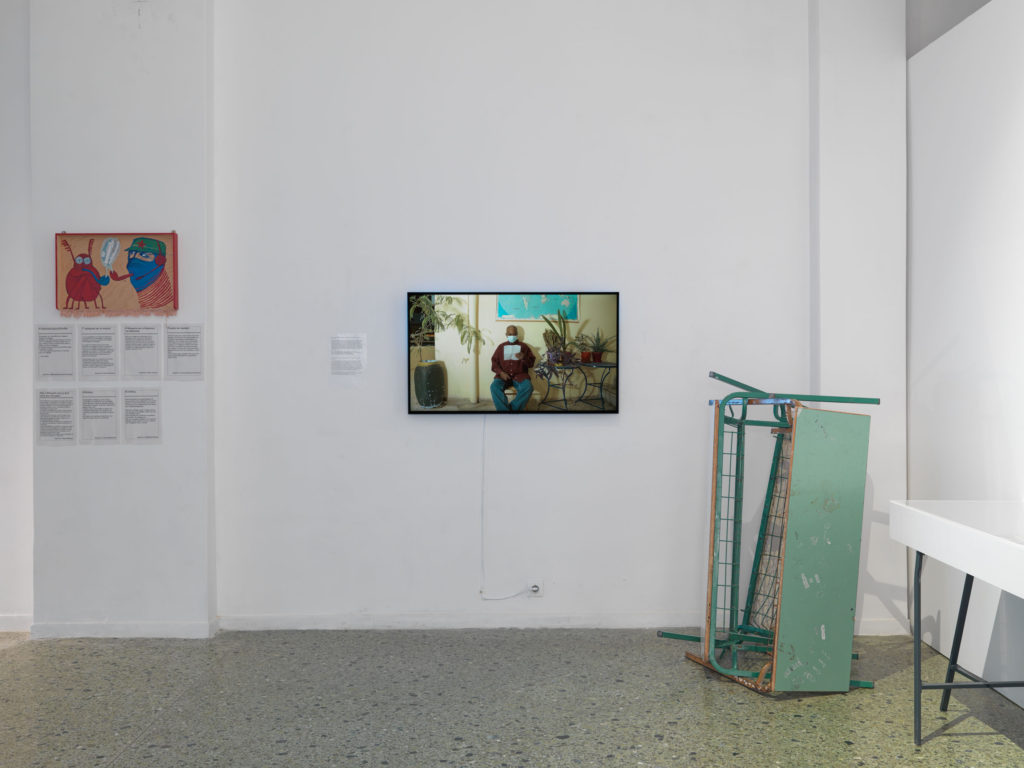
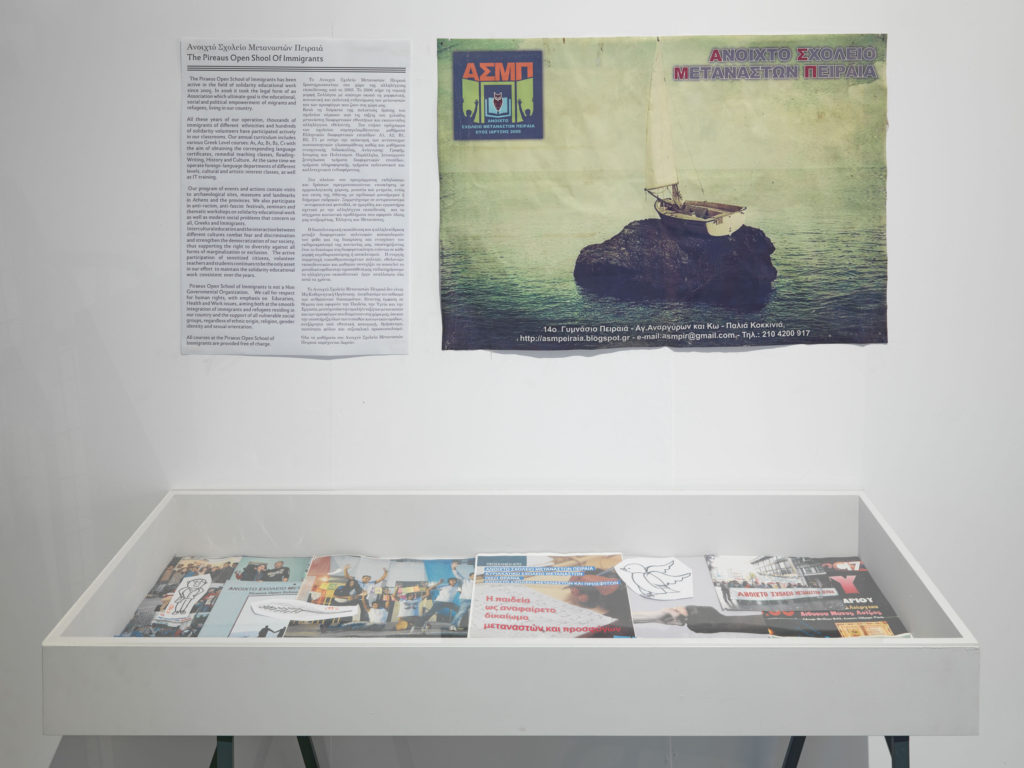
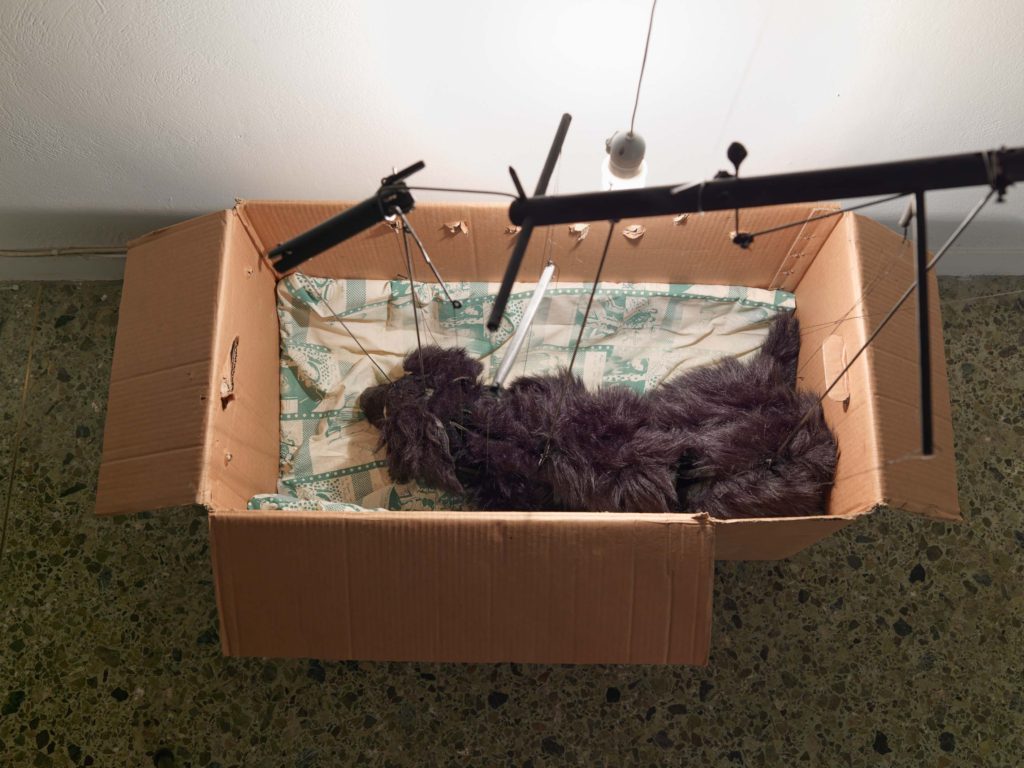
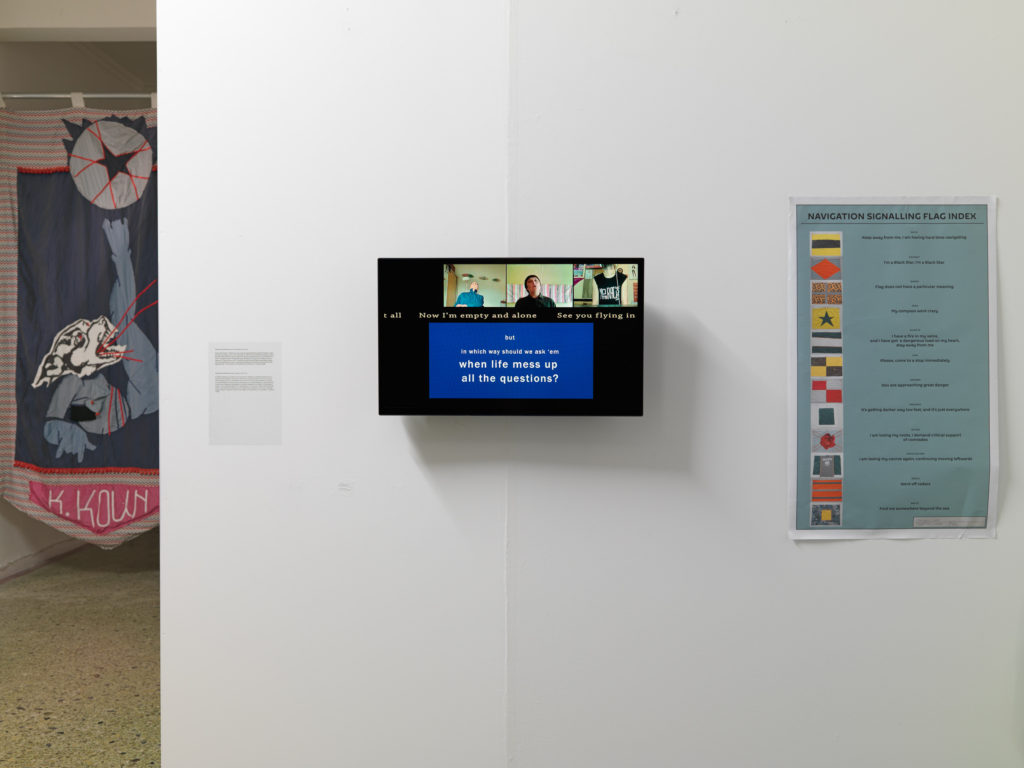
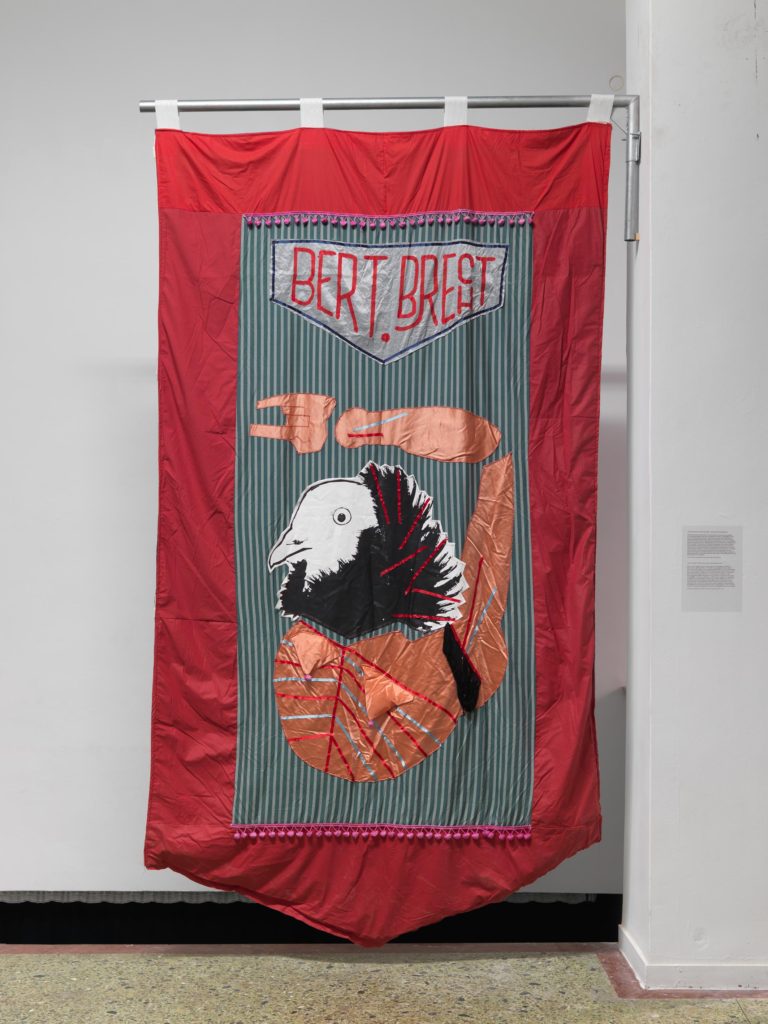
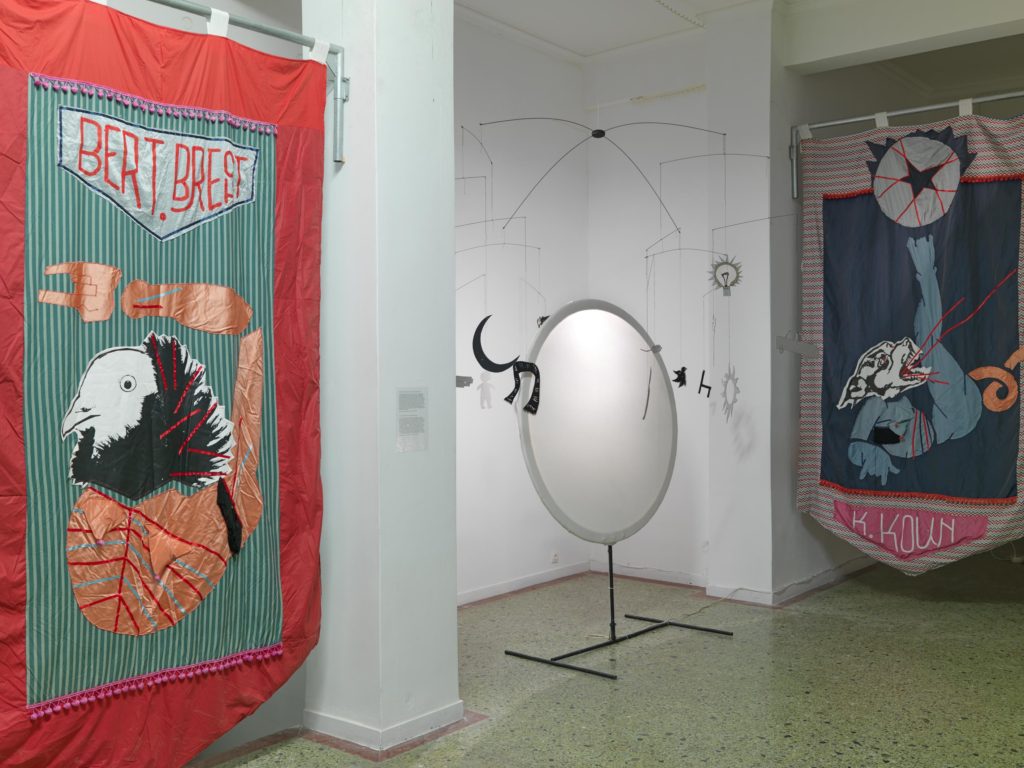
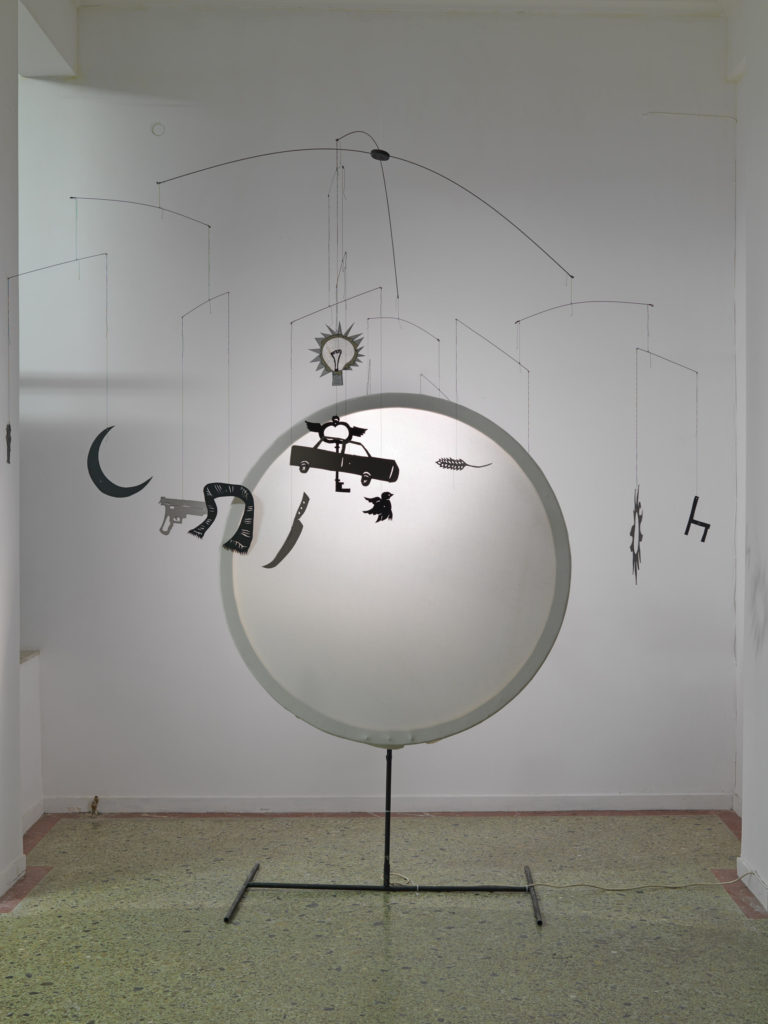
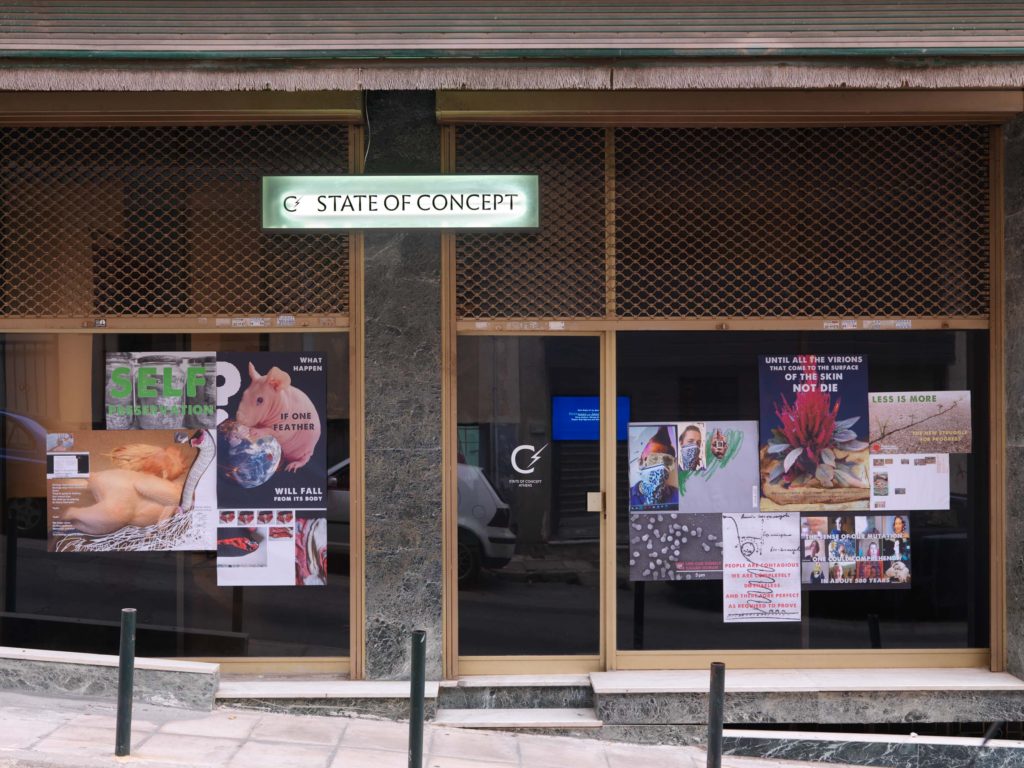
Chto Delat, Our Mutation, poster series, installation view © State of Concept, 2020.Photo: Stathis Mamalakis.












Chto Delat, Our Mutation, poster series, installation view © State of Concept, 2020.Photo: Stathis Mamalakis.
25 September—14 November 2020
Solo show
State of Concept is proud to present the work of Russian collective CHTO DELAT, in their first solo exhibition in Greece.
The collective has been making it their task to carefully craft a collective proposition on the commons as an artistic path, through an embodied politics of care.
The group is preoccupied with realising a lot of (im)possibilities in relationship to the power structures that concern education and its systems. They engage themselves with the transfer of non-epistemic knowledge and its re-evaluation in relationship to indigenous, feminist and intersectional practices, with an aim to abandon classical hierarchies within the educational system in favor of horizontal structures that are frequent in communal political ideologies.
In many of their video installations for their first solo presentation in Greece, the collective uses the encounters between what has come to be known as the West with the rest of the world, from a Russian perspective of a geopolitical positioning that stands somewhere in between. It seems Greeks share with Russians this feeling of being with one foot in the west and one in the East, with Greeks. This offers many advantages of being able to see the mishaps of the Western Canon, while exercising a fierce self-critique on left ideologies stemming from the USSR.
The exhibition will present an array of video works and textiles from their decades long trajectory, as well as a new commission, that is conceived together with The Open School for Migrants Piraeus and puppeteer Stathis Markopoulos. One common thread evident in the practice of CHTO DELAT, is how strongly connected their work is to the idea of repair and regeneration. This reading of their work is extremely interesting to me, since it is very much linked to the core of what Solidarity Migrant Schools do: trying to repair the collapsed thirst for knowledge and education that migrant communities have when arriving in a new unfamiliar place and aiming to regenerate the appetite of participating in collective emancipatory structures while building a community of care, solidarity and empowerment. Because a school is the ultimate paradigm and form of a collective practice, which includes one the one hand a set of rules and regulations, but which also opens up possibilities of different structures and improvisation, it is also a great platform which one can study and then aim to reformulate its model.
The collective Chto Delat (What is to be done?) was founded in early 2003 in Petersburg by a workgroup of artists, critics, philosophers, and writers from St. Petersburg, Moscow, and Nizhny Novgorod with the goal of merging political theory, art, and activism. The name of the group derives from a novel by the Russian 19th-century writer Nikolai Chernyshevsky. In 2013, Chto Delat initiated an educational platform The School of Engaged Art in Petersburg, and also provide resources for a space called Rosa’s House of Culture. The activity of the collective takes responsibility for a postsocialist condition and actualization of forgotten and repressed potentiality of the Soviet past and often works as a politics of commemoration. The collective strongly focus on the issue of cultural workers’ labor rights and the politics of comradeship. Their artistic activity uses a range of media—from video and theater plays, to radio programs and murals—it includes art projects, seminars, and public campaigns. From its inception, the collective has been publishing an English-Russian newspaper focused on the urgent issues of Russian cultural politics, in dialogue with the international context.
The works of the collective are characterized by the use of alienation effect, surreal scenery, typicality, and always analyses of concrete social and political struggles. These activities are coordinated by a core group including Tsaplya Olga Egorova (artist), Artiom Magun (philosopher), Nikolay Oleynikov (artist), Natalia Pershina / Glucklya (artist), Alexey Penzin (philosopher), Alexander Skidan (poet and critic), Oxana Timofeeva (philosopher), Dmitry Vilensky (artist) and Nina Gasteva (choreographer).
Recent exhibitions include: Progress: The 12th Shanghai Biennale 2018, China; The Modern Art: 1960–2000. Restart, Tretyakov Gallery, Moscow (2018); MUAC (The Museo Universitario Arte Contemporáneo), Mexico (solo show 2017); KOW BERLIN (solo show 2017 and 2015), San Paulo Biennale (2014); Art, Really Useful Knowledge, Museo Nacional Centro de Arte Reina Sofía, Madrid (2014); Art Turning Left: How Values Changed Making 1789–2013 – Tate Liverpool, Liverpool (2013); FORMER WEST: Documents, Constellations, Prospects,, Haus der Kulturen der Welt, Berlin (2013); 10th Gwangju Biennale, Gwangju (2012); Chto Delat in Baden-Baden, Staatliche Kuntsthalle, Baden-Baden (2011); Chto Delat Perestroika: Twenty Years After: 2011–1991, Kölnischer Kunstverein, Cologne (2011); Ostalgia, New Museum, New York (2011); Study, Study and Act Again, Moderna Galerija, Ljubljana (solo show 2011); The Urgent Need to Struggle, Institute of Contemporary Art, London (2010).
The works are part of the collections of: The Museum of Modern Art , New York; Van Abbemuseum, Eindhoven; Museum Reina Sophia, Madrid; Le Centre Pompidou, Paris; MUDAM, Luxemburg; Tretyakov Art Gallery, Moscow; MUAC (The Museo Universitario Arte Contemporáneo) Mexico City; KIASMA, Museum for Contemporary Art, Helsinki; Kadist Art Foundation, San Francisco; Museum of Conteporary Art, Belgrade; CAAC, Sevilia and many others